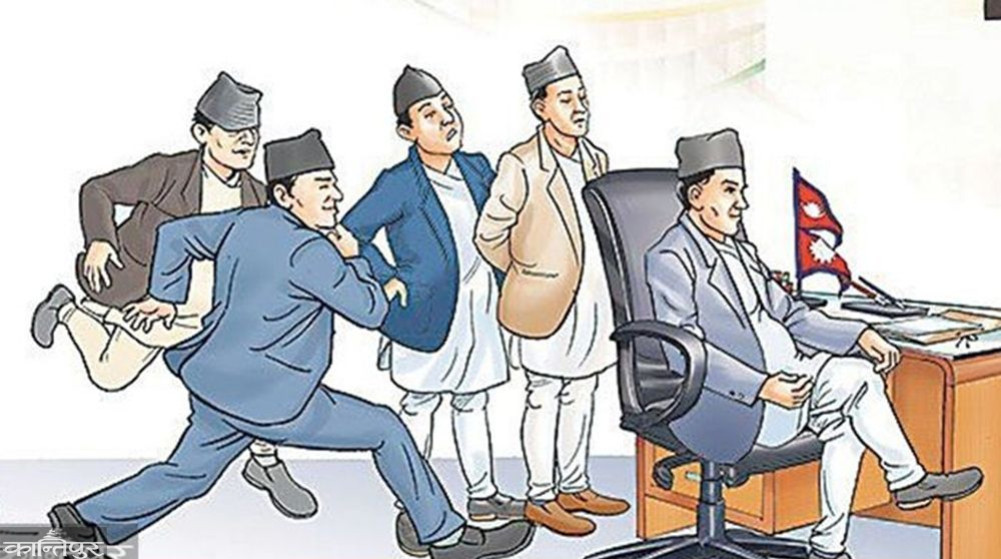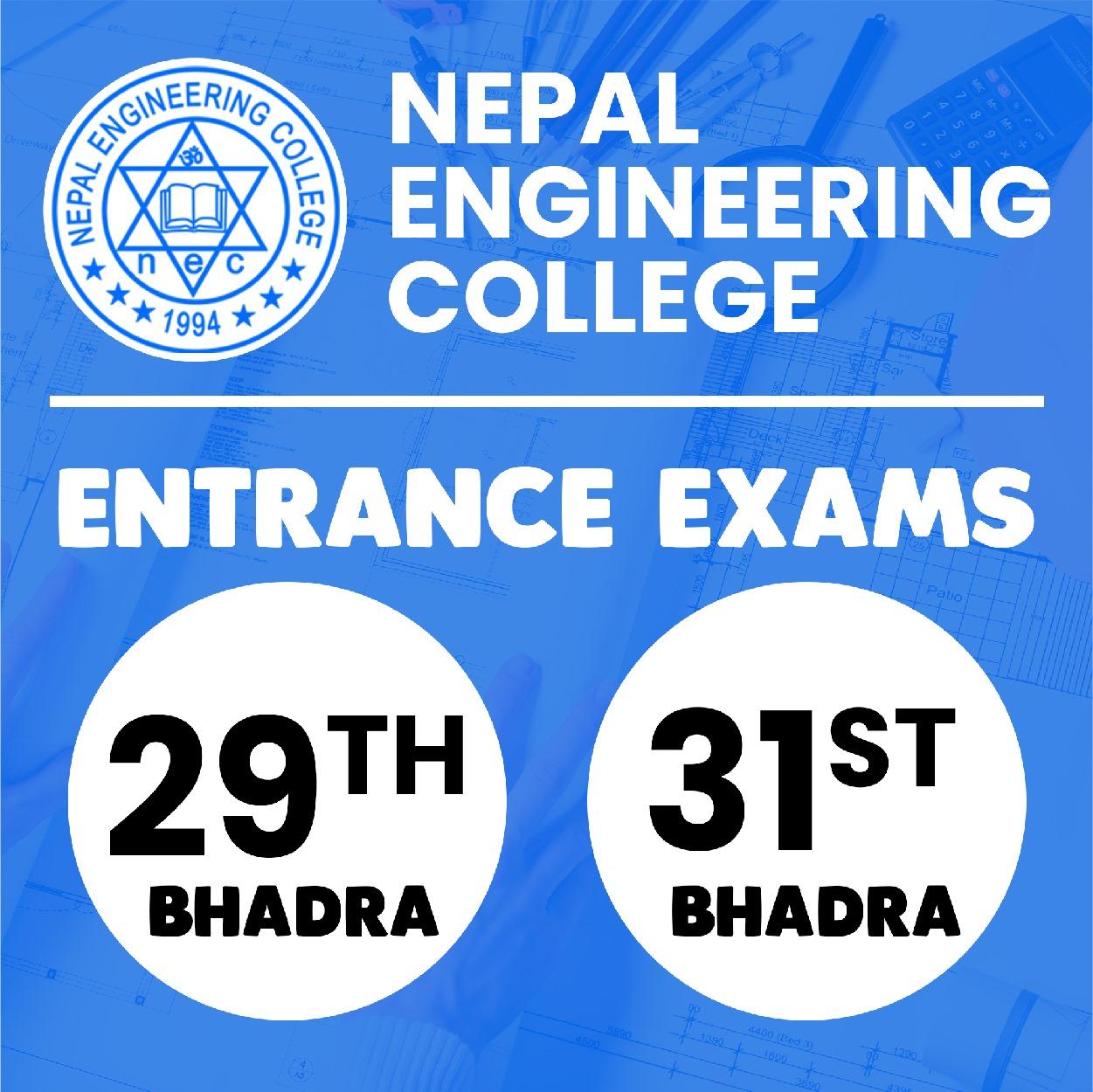Kathmandu smiles from Janakpur
We use Google Cloud Translation Services. Google requires we provide the following disclaimer relating to use of this service:
This service may contain translations powered by Google. Google disclaims all warranties related to the translations, expressed or implied, including any warranties of accuracy, reliability, and any implied warranties of merchantability, fitness for a particular purpose, and noninfringement.


Janata Samajwadi Party Nepal led by Upendra Yadav was divided. The secessionists received a red carpet welcome in the federal government. A year ago, Upendra was let through the main door of the House of Representatives holding hands while telling the story of a miraculous collaboration.



These are not just two short stories of contemporary politics. This is part of the game being played by the establishment. Such short stories are endless. So this is not the tears of Upendra alone, but the lamentations of Mahanth Thakur, Rajendra Mahato and others are mixed in it.
Right now, there is more talk in Kathmandu about who went to the government and who left. Upendra Yadav, for whom he was a darling until recently, stabbed him in the back. There are many places to question his political moves, character and face. The main question is, is it proper for the big, old and ruling parties to divide their coalition parties? This question was not raised as intensively as it should have been in Kathmandu. It is up to the individual or group to decide what they want to do. But if the ruling establishment itself does the work of creating all strategies and procedural adaptations to break the party, it is a criticism. Those catalysts are not able to justify it. This trend is not a reflection of Nepali political consciousness.
Let's take a look at Upendra's broken feet on a wider canvas. Where are the forces that give gravity and dignity to the third Madhesh movement in 072? How were they made weak? It is not necessary to be small-minded to properly evaluate the contribution made by big parties in bringing democracy. But it should also be understood that their cheering for strong provincial practices and meaningful inclusion, importance of identity and assurance of good governance is not democracy devotion. There is no need to exclaim that democracy has been strengthened by the suppression of the social justice movement by the dominant.
Rumors are spreading in Madhesh politics. Madhesi politicians have to look so nationalistic that they seek the favor of Kathmandu when deciding where to have tea. Upendra found Khadga Prasad Sharma Oli and Pushpa Kamal Dahal Prachanda more reliable than the Madhesi leaders. Sometimes the Samajwadi Front and sometimes the Nationalist Front were wandering in the mirage. At this moment, his dream was shattered. Think, when you pray again, these 'masters' are pleased and say Tahastu. Nothing happened. Oliji showed this red card to Upendra in 076. Not being able to understand the intentions of the dominant is Upendra's weakness.
The social churning influenced by Upendra diversified political awareness. It set the stage for a new egalitarianism. Simultaneously, a hungry group of political aspirants surfaced. Ever since his rise to prominence in the First Constituent Assembly, his political character and structure underwent a rapid change. After the provincial practice, it attracted the get-rich-quick class, which had an impatient eagerness to share in the state spoils. He did not represent a real change for provincial practice. Fagot represents a change in old exploitative leadership. Around him, those offering the same praise, pradakshina and offering prasad came to form a circle. Despite this, a section of Madhesh has a frenzy for him, hoping that he will rise again like Dubo and chanting slogans - Long live Upendra Yadav!
The political forces that emerged from Madhesh politics were established with a specific goal and vision, organized and ran for elections. But he made compromises with his dreams and determination to stay in the sensual lane of power. It is easy - to incite a struggle by presenting a specific dream, but it is difficult - to write a new grammar of power politics in terms of that dream. So it is not a political commitment. This is a time of political convenience. This is the era of political backlash. Sometimes someone stays in the role of becoming a paltu, but this process has not stopped.
The new chapter of political opportunism that has been written from Madhesh, has started to push a particular person into power, but the respect of the Madhesh movement has weakened due to this. Those who were dedicated to the struggle for social justice and national unity yesterday, were seen wearing Chokta at a feast at 'Madhesh Bhawan' in Janakpurdham to quench their hunger and thirst. After all, this is what Kathmandu, the silk city of the hegemonic power, wanted. Singha Darbar is currently laughing over Janakpur! Kathmandu wants its own puppets to dance in the provinces. Speak his language. Janakpur's power has its own limitations, but Janakpur's non-violent and inclusive language of political and social change is rare in today's politics.
At present, the age of promises and slogans in politics is not even from morning till night. But let's see, in the coming days, someone will say, is there Upendra Yadav in Madhesh? Or again, his political vehicle is declared unroadworthy on the charge of spreading enough political pollution. It is possible that they will be able to use the umbrella of a political slogan to keep them entangled in 'politics of hitting the water with a stick'. After the reference to Lathi came out, this Lathi was the symbol and strength of the Madhesh movement. Citizens of different age groups who came from the village to surround the headquarters yesterday with sticks couldn't hide the questions that were rising in their minds like waves of the sea.
About forty-five years ago, a Hindi movie was made - Mr. Natwarlal. In it, actor Amitabh Bachchan recites a song to the village children – 'Mere paas aao, mere doshos, ek kissa suno...' The hero was passing through the forest. Suddenly a lion came forward. The children asked - 'Phir kya hua' - 'Muje markar kha gaya.' The situation is like that of actor Amitabh Bachchan, who lives after being eaten by a lion in a film story.
Madhesh is shocked to hear all this. Even after reaching the lion's mouth, he finds himself in the 'image' of the living Abhitav Bachchan, neither laughing nor crying. He is silent. He is neither in a position to say, nor is he in a position to believe that 'Yeh bhi koi jeena hai lallu!' Such leaders and slogans are needed, who will reconsider the common mistakes and weaknesses of the past, and give management to the emerging aspirations and Ukusmukus. The Madhesh movement is caught in its own contradictions. The crisis is inherent in the process of understanding and explaining Madhesh.
Once upon a time, Janakpur was becoming a power center around Kathmandu, while the remaining six provinces looked innocuous as the hangers-on of the union. Who will lead in Janakpur today is not the main question. Kathmandu is writing its own script. Janakpur, on the other hand, is tired, confused and confused. Remember, people's memory is very deep and justice is very fair.
 प्रकाशित : जेष्ठ ३, २०८१ ०८:०७
प्रकाशित : जेष्ठ ३, २०८१ ०८:०७

 २१.१२°C काठमाडौं
२१.१२°C काठमाडौं
















